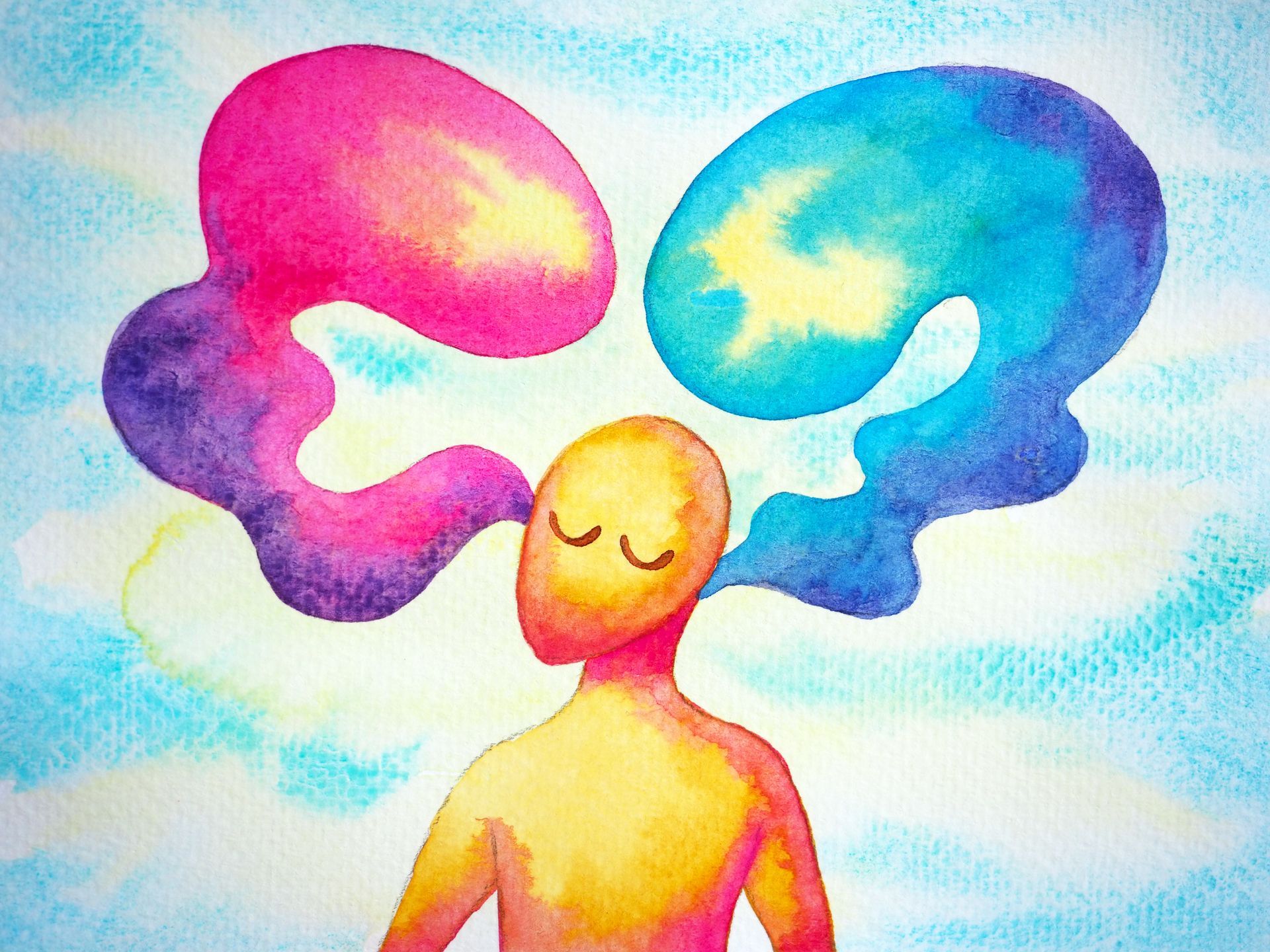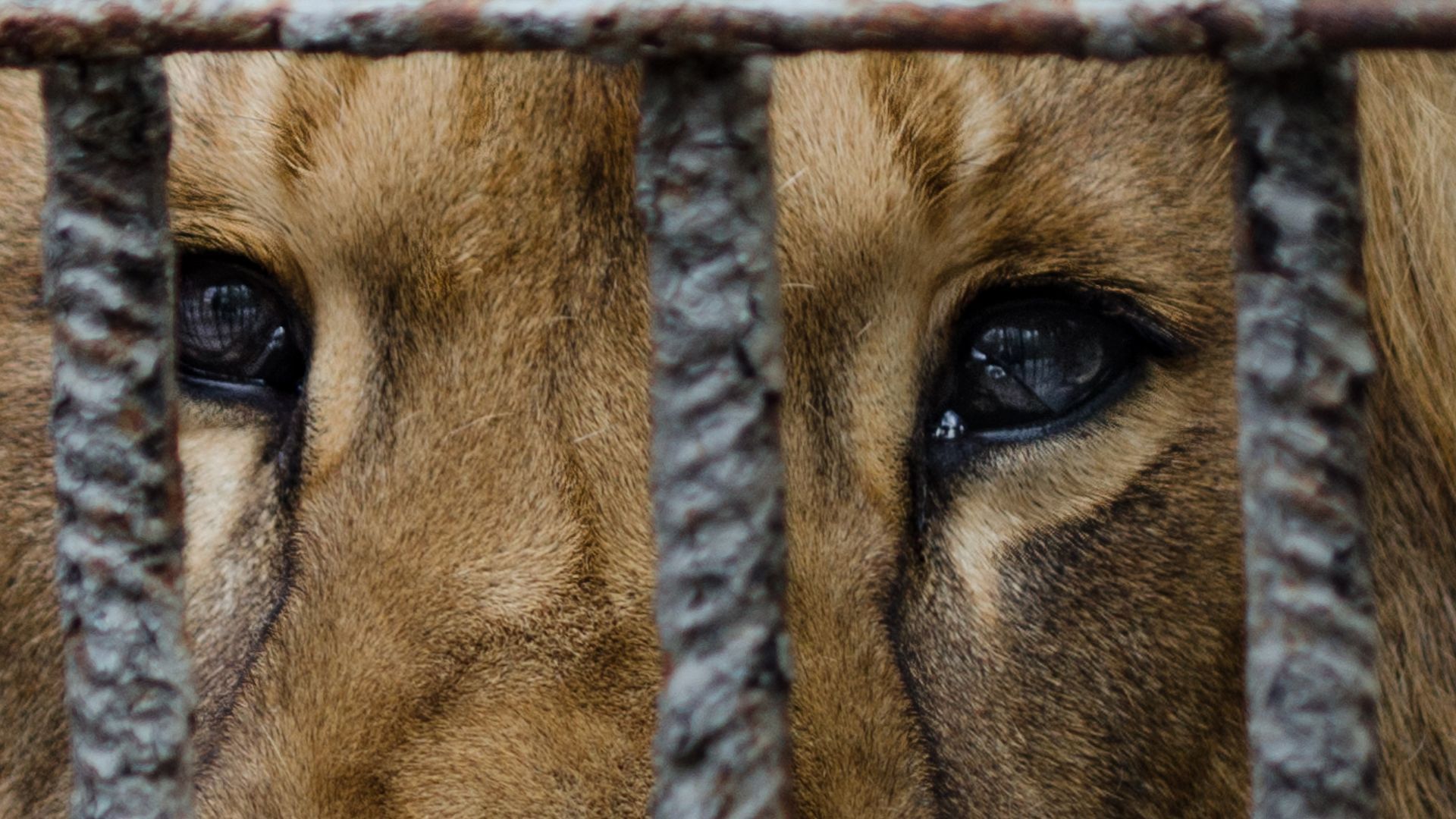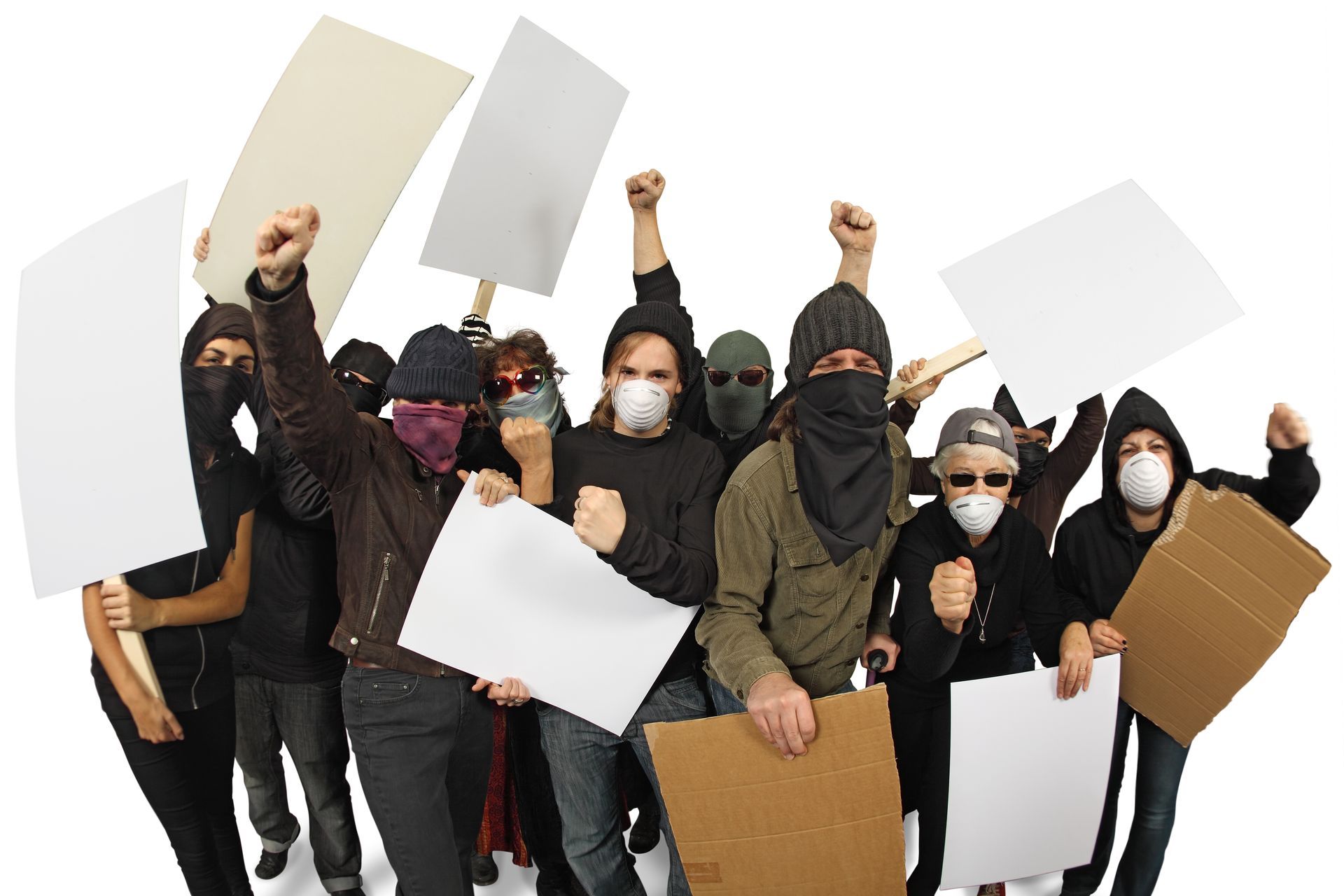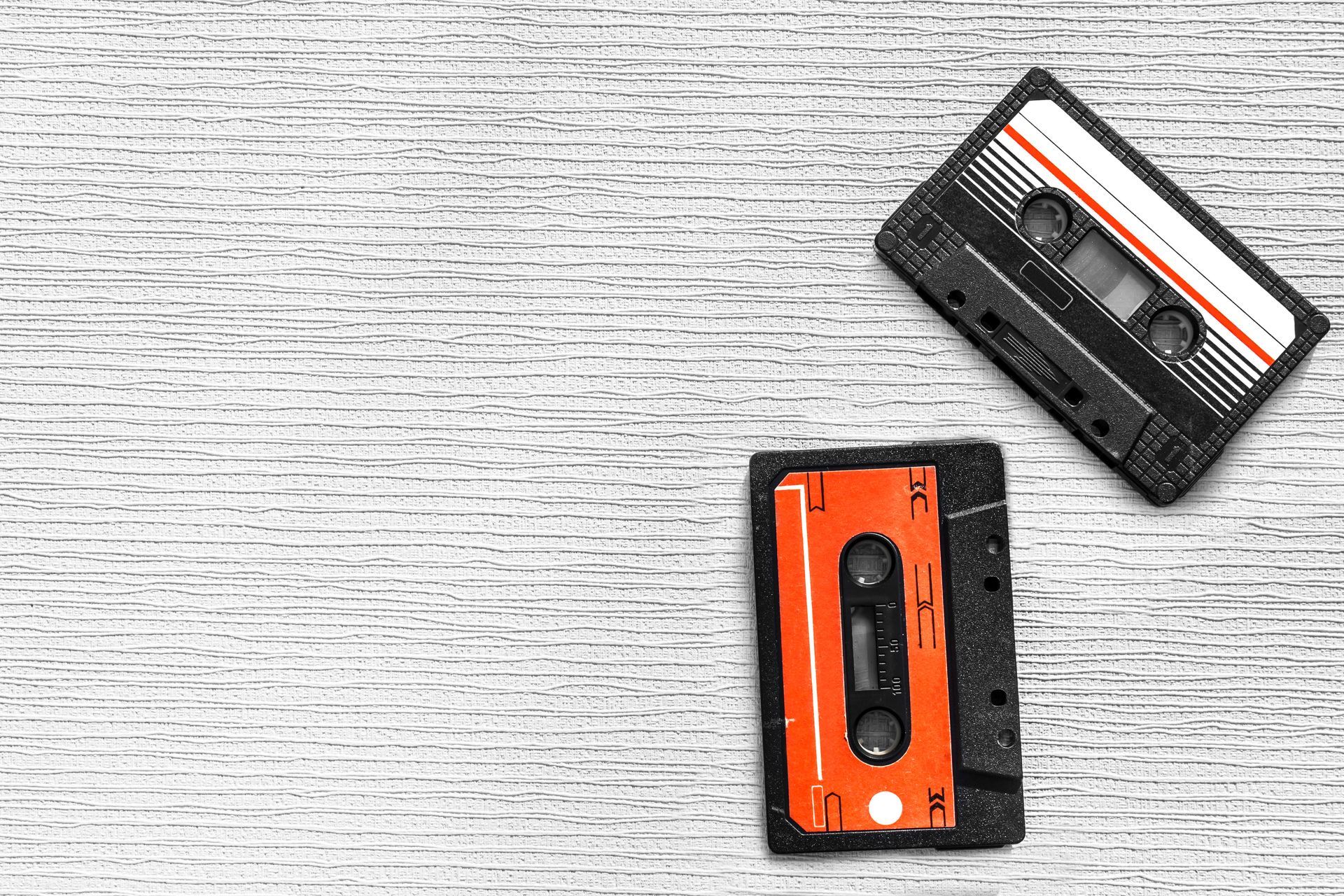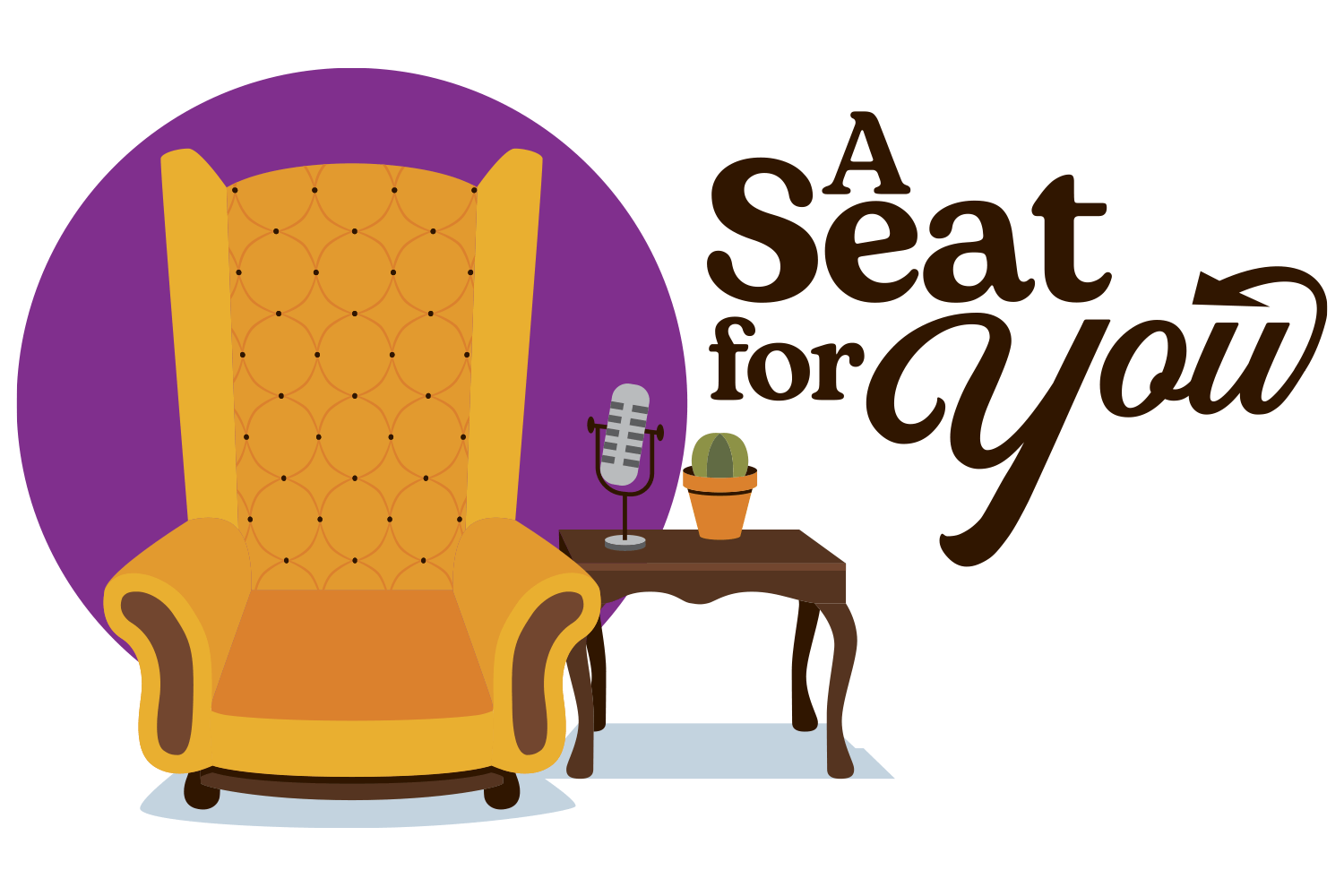Episode 12: Leaving Comfort Zones: The Art of Change
April: I can like participate once it's going, but to start it, it's like, hey,
How's it going?
It's just awkward. I just don't know what to say.
Did you already get it going? Is it recording right now?
Leslie: Yeah.
April: Welcome back, everyone. We are on our finale episode. Of season one. Of season one. Yay! If you've made it this far, we thank you so much. Cue the applause. Insert fun sounds.
So yeah, we thank you very much for listening to this and we're learning as we go. So we appreciate, um, your feedback and [00:01:00] your support. And so what we wanted to talk about in this episode was what's next and also about changes we've made in our lives over the last several years and how we've learned to the steps to when we want to change something, how do we actually put that into effect? The Greek philosopher Epictetus said, you can't hope to make progress in areas where you've taken no action. So, basically, if you want change, but you do nothing to make the change, you can't complain about it, because you're not doing anything to promote something different.
That's... That's the definition of insanity,
Leslie: right? Yes. That's doing the same thing over and over again, expecting different results. And
April: a lot of us do that. We, we are very good imaginers and dreamers, and we see a vision of what we want, but we don't [00:02:00] actually put into effect any practical steps making those things happen.
And
Leslie: so, Yeah, I think a lot of people, they don't know, they don't know how to change or do different things, you know, like it's, it's because it's uncomfortable, right? That we've, that's kind of been a theme of the whole season is you stay in a comfort zone. And so it's much easier to be comfortable and keep doing the same thing, but wishing for something different to happen.
April: Right. And dreaming and envisioning is just kind of a safe way to see yourself. It's kind of like. Um, my daughter with like, she knows what she wants to be, what area she wants to be at 10 years from now. Mm hmm. The small processes from now to get to that point, like we have to graduate high school first.
Right. Can we just do that? Right. Um, get a first job, you know, go into college, play soccer, like her job should just be that. [00:03:00] Right now and she's has had a hard time just enjoying that process of things Mm hmm being in the place where she's at because she's thinking so far ahead That she can't see that these little things have to be done
first.
Leslie: Right. But I mean, the, the, don't discount the vision. You know, like, like how we've, we've made vision boards before. And, you know, I'm, I'm a firm believer in manifestation because I think you can manifest things to happen for your life. Um, but It's not a, a rubid, a lamp, a lamp and a genie comes out and you get a wish kind of thing, like, you can, you can make a board and you can, you can say positive affirmations and you can manifest certain things that happen, but it still takes action to make those things happen.
April: Right, you're not going to wake up in five years and, oh, I made it. Right. If you didn't actually do something to put that into place. But [00:04:00]
Leslie: the vision and the manifestation part is what allows you to see yourself in it. Like if, if you know how to manifest this, you know, when you, like you can feel the feelings in your body, like you already have arrived at whatever that finish line is.
So if you can see it. and you can feel it, then it will help you get to where you want to go.
April: Right. Have you looked at your vision boards lately?
Leslie: Um, well, I have like three, so.
April: Well, I looked at the ones we have in the office. Yeah. And so from the first one that we made, what was that?
COVID year? I think it was 2021.
With Dana. Shout out
Dana. Shout out to Dana. That was a fun time. And, uh, I think I've pretty much gotten everything on there. Like I pretty much accomplished. Everything on there. And I've like, for the one that we just did this past year, um, there's [00:05:00] quite a few on there too. Some of those are like a longer process that might be kind of like a lifetime of things, but it does definitely help to put it on a board and you know, glue it down.
Leslie: Give yourself a road map. On some canvas. It just helps. Because it's easy to forget where you want to go. Right. You get so caught up in everything else that's going on that you don't remember what your dreams are. Right. You know, you get lulled into just going to work every day and then coming home and sit on the couch and watching Netflix like.
Right. Do something different to get something different. Right.
April: I remember um, As a gymnast, we had these little workbooks and we had to do short term goals and long term goals. And the short term goals are like the actual building blocks to be able to accomplish something bigger, um, like a bigger skill.
And obviously, we all want the bigger skills, but if you can't do the little one, you can never do the big one. And so they were super helpful because you had to like write it down, and [00:06:00] every week you give yourself kind of a time frame too. Let's say... I want to take a month, and I want to, at the end of the month, have this skill accomplished, and then the next thing, and if a month has passed, and you're not there yet, you need to change something up, something, you need to practice something different, and we were always taught, you know, practice doesn't make perfect, perfect practice makes perfect, so you practice something correctly, And you will get there.
So I feel like it's a really good life skill that, I mean, even as adults, we can use it in every aspect of life. So, um, we wanted to talk about the changes we've made in our own lives in the last. For me, it started when I decided to go back to school in 2018 and kind of switch my entire direction of study.
Uh, I have a graphic design and an art degree and after working in the medical field for almost a decade, I fell in love with [00:07:00] that. So I kind of changed my whole direction and I'm going to be going into radiology. And so that's kind of been a work in progress and I'll start that program again next year.
And so in the process of all of that, going back to school, figuring out what classes I needed, um, putting myself into a classroom full of kids where I was old enough to be some of their moms and having to come home and do homework or do homework while I was at work when I had time. And taking really tough classes.
I had to really change my mindset and it, and it allowed me to kind of change my mindset about myself. Um, it kind of gave me some, I guess, extra confidence and belief in myself that, you know, if I want things to happen, it doesn't matter how old you are or what stage of life you're in. You can, you can make them happen.
And so I guess after a couple of years of [00:08:00] getting caught up on the classes, I would need to change direction in my field. The pandemic happened, and that also kind of brought about some, uh, mindset changes. And, you know, Leslie and I began talking probably before this time and from that, from those conversations and from kind of the mental work I've had to do, you know, going back to school and whatnot, um, it kind of opened my mind so that I'm capable of learning more things.
And so with that came the decision to leave the church I was at. Yeah. Because. I realized that that was a space where there wasn't really freedom to not just learn things, obviously you can learn things, but to be able to change your mind on some things. Like there's very specific stances on things and you're either in line or you're going to get booted out of that line.
And I want to normalize being [00:09:00] okay with changing your mind. And after you learn new information. We had a conversation just last night, you were going to bring that up. There was something you wanted to say with that.
Leslie: Well, you were. You were talking about how, we were listening to a different podcast that had, um, uh, I guess a pretty, N. T. Wright. Famous theologian. Yeah, he's, yeah. And written many books on religion and, theology. Theology, a lot specifically around Paul, and so we were listening to, um, This podcast that you had shared with me and you were telling me how when you were listening to it, you got emotional and you, you know, it, cause it was, you had the awareness that it was okay to change your mind.
Like you are allowed to learn new information and with that new information, change your mind with, you know, with, with [00:10:00] education and knowledge and critical thinking. Right. And. You know, the conversation that we had was that it made you sad when others around you weren't like sharing in on this. This new information that it, it almost turned into a burden knowing this information because then you could either, I don't know, you feel responsible to bring everybody else with you or...
April: almost like when you're an American and you see all these things happening, like in Israel right now, why are we so lucky to have been able to be Americans and, and born into this safety and even like our most unsafe people are still a lot safer. Then some of these countries, you know, so it's kind of like that.
Maybe not that extreme. Mm hmm But it's like well, why do I get to kind of have this profound secret? Mm [00:11:00] hmm You know, why do I why do I get to to hold that right where
Leslie: well, it's not really a secret It's you placed yourself in a position to learn new information It's like people who don't understand science, you know like If, if, if you aren't willing to learn how certain things are, have come about or through scientific evidence and scientific proof and yet you still want to believe some myth or story about how something happened, then you're doing yourself a disservice.
It's not someone else's responsibility. and force you into the education of learning something new. And that's, you know, the analogy that I had shared with you last night, after you saying that you, you know, you felt sad about this [00:12:00] because of other, you know, family or friends that might not, right.
April: Well, I said, it felt like I was running in a marathon and I'm leaps and bounds ahead, but I see, like, people that I love and care about, like, struggling behind me. Right. And it's like, I feel like I need to help them. Right. I need to stop, turn around, go help them. Yeah. And, and help them pass that line.
Leslie: And I, and that triggered in me many years ago. Many years ago. Um, when I was, I had a counselor who, um, told me this. This, this one analogy, and it's weird how you remember random things. Like you don't know that all these things are in your mind, but then when, when like a comment like that is made, it popped right up like crystal clear. And she had always said when you are in a marathon and you have the runners that, you know, they break you up into all the stages. And you have the runners at the front that are [00:13:00] fast, and so they're going to take off when, when the gun is fired, right? And then people are different times on the back. Well, if someone in that front pack falls down, Those fastest runners, or the runners next to them, do not stop.
It is not, that is against protocol for them to stop and turn around to help them up. Because they are going to create a bigger pile of crashes by doing that. You know, they're gonna, it's like that big rock that gets thrown into the river. You know, and all the water is trying to go around it. It is the responsibility of the people behind that runner who fell down, help them get up. And so you can't do a disservice to yourself to stunt your own growth because you're constantly going backwards to try to help people. We are all on our own journey and all experiencing our journey at a different like pace, [00:14:00] right? Right. And so while yes, it may be sad and it's up to us to find ways to still maintain, you know, healthy and nurturing relationships with these people that are on different levels than us, it's not our responsibility to have everybody around us come up to whatever level we feel we're at.
April: Right. And I guess too, the sad part in this is that the people I'm referring to really, they're not just like falling behind in this. I don't even want to call it a race, but for analogy purposes, we'll call it a race.
They're not even in the race. They don't even know that there's a race. Yeah. You know, so they're just like kind of stagnant, I guess. And they don't, they don't know what they don't know. And I guess that's where the burden comes in. It's like, why do I get to know this? Meanwhile, trying to still have a relationship.
Leslie: [00:15:00] Yeah. I mean, that's, I think for me, it's more frustrating than a burden because like I I've mentioned before, I don't like surface level conversations. I want, you know. Any type of interaction with people to be meaningful. And, but I think I'm learning that that just isn't possible all the time. Like you have to just where, how we say meet people where they're at, right?
Like, and sometimes where, where they're at may not warrant a super in depth conversation about something because they're not going to be capable. Of having the same type of conversation with you because they are not armed with those tools to use, right? You know, their, their bag of tools is empty and [00:16:00] And not saying we have a full bag of tools, but we might have a couple.
And the same situation applies for us when we're having conversations with people even further down the journey that is, that have experienced other things that we have to learn, you know, we have to get comfortable in the discomfort of not knowing something. And I think that not knowing something puts people on the defensive automatically.
And so that just is a recipe for disaster. When it comes to trying to have a conversation with somebody who's not in the race. Right. Or doesn't know a race is happening. Right, you know, because that's that's not good for either party involved there.
April: Yeah And so I guess you know when I left the church it allowed me not not the church Just the one I was at it allowed me to go into a space where I had the freedom to learn and I wasn't stressed out about it and The more that I learned the more I [00:17:00] was able to be aware of other things in my life that I needed to make changes in whether it be certain things I support or Behavior in one way or another, or the, you know, the way that I saw myself or o some people, you know, other people.
Um, and it kind of allowed, it kind of opened up the, the floodgates, I guess you could say of awareness. For my own actions and things that I need to make progress in on my own.
Leslie: Mm hmm Yeah, I mean it definitely puts a spotlight on areas where you need improvement Yeah,
April: and systems that you should no longer be part of mm hmm or identify with or and that's also that comes with its own trauma really and you know kind of like its own baggage, but It's also very freeing.
Leslie: Yeah, that giving up your, what you've only known. Yeah. Yeah, like, um, and, and not knowing [00:18:00] what else is out there, but it is that, that push and pull or the yin and yang of, of release and, or relief and despair all at the same time. Right.
April: And you also know that you're on the right track, so you can't look back.
Right. You know, the synchronicity that we always talk about, like it's bizarre sometimes, the synchronicity that we fall in line with in the most random places or times during the day or week or whatever, and you know, it's just those little signs that let you know that you are exactly where you're supposed to be.
So there's no turning back, but sometimes when you glance back there, you, there's things that you miss. Yeah,
Leslie: and I mean it's it's interesting because also one of the things that's changed over the last two years for me is The same as yours but different like right going to church, right, you know, like you changed a church I just [00:19:00] started going to a church, but the experience is all the same like I Was hesitant to go to a church I mean I wanted to I guess maybe in hesitant is the right word but like I wanted to go with you to provide support maybe but not like Not have both feet in like I could go and not go You know what I mean
April: like Austin go into soccer games right there. He's there, but he's not there
Leslie: Yeah, like I could I could have done that but You know, the, the church that we found was just really interesting. Like I, it wasn't like the stereotypical church that I've imagined or seen, or, you know, seen horrible clips on YouTube of, or, you know, the, the churches of the past kind of thing.
Like I [00:20:00] looked at it as a place for education. Like I was really interested in what was being said. Um, not with any context of something I had known in the past because I had nothing to compare it to. Right? Whereas you do have things to compare it to, and it's still way different than what you've heard in the past.
Oh, for sure. So that's, it's challenging you in a different kind of way than it challenges me, but it's the same activity, you know? And so it's, it's a really interesting perspective from both sides. Right,
April: it's new information for you, altered information for me. Mm hmm. Whereas it's not all completely different. The bare bones are there, they're the same, but it's kind of all the noise That we get caught up in that has become a peaceful sound at this place rather than noise, you know what I mean? Yeah, it's not unnecessary chaos Causing havoc [00:21:00] among you know people. It's there's clarity and it all makes sense
Leslie: Although I I get from some of the conversations or sermons that there may be some of that noise happening for some people Because again, we can only look at It from our perspective, and so it's quiet for us because we're in a place of receiving this information.
But I kind of get the feeling that there are some people there that might be a little bit more old school and are not comfortable with some of the messages that are being said.
April: Well, you know, and no one's forcing them to stick around. Right.
Leslie: Well, and, and, but, like, you hope that they stay around, like, you, you don't want this place to also just become a room full of like minded people.
Right. Like, you, you want diversity of [00:22:00] people and opinions. And you want to be able to have healthy conversations, um.
April: No one should go in thinking they have all the answers. Everybody should go in with a, a heart of learning. Mm hmm. That you always have room to grow. Cause the moment you think that you've got God figured out, or this whole thing, that's the moment that he's gonna show you how much you don't.
Right. So what about you? What about
um,
Leslie: Yeah, I think other things for me that I've kind of learned over the last, Few years, um, besides the, you know, going to church thing, or I think taking an interest in, um, different types of religion or I'm trying to understand religion better so that I can understand, um, where air quotes, the other side is coming from.
Um, [00:23:00] that's, that's been one of the things, but I think also understanding myself better, um, you know, the pandemic was something that. We all universally, globally went through, right? Everybody went through the pandemic. No one was able to escape that, but people did have vastly different experiences in the pandemic.
And for me, I think it taught me a lot of patience and allowed me to see myself in a different way. And that was, that was a unique experience. It's hard to describe, but. It was positive in many aspects, um, because it allowed me to slow down. Or be forced to slow down in certain areas of my life. And when you slow down, you have to have self reflection or, [00:24:00] you know, you, the rest of you catches up, you know, with you when you get, when you actually stop.
Um, it was funny, I was talking to my mom last night about, um, the whole, Ashlyn and Allie divorce drama going on. And if you don't know their, um, iconic, the, the iconic lesbian relationship in, in women's soccer, you know, it was, uh, it was something that everybody aspired to be. It was a momentous day when they got married and, um, you know, they were put on this pedestal and, uh, it was just announced that they're getting a divorce and it, and it seems clear that there's some kind of, um, you know, just as in any kind of relationship, doesn't matter if it's. Heterosexual, homosexual, friendship, parents, no matter what, it always seems like the cycles are the same. What people go through, it's all the same, and it all comes [00:25:00] back to unhealed things from your past, typically things that happened when you were a kid or a young adult that you didn't have the, the, the tools to handle or to cope with, and you know, when you're younger.
When you're an unhealed person, and you're in a healthy relationship from like, the outside view, that that's what a healthy relationship is. But when you're in the relationship, there's something that's troubling you, um, and you think that you're going to just run to the next person, because obviously this is the situation that is the problem, right?
It's not you. You aren't the problem. It's the relationships. That's the problem. So as soon as you go to a new relationship, the problem will be changed. Right. But it was like, no, because. Your problem is at home still [00:26:00] packing it's bags and packing up the boxes of your past relationship. And will be also joining you in a U Haul to the new relationship.
It's just gonna take a little bit to get there because it didn't know what was about to happen. You tried to run fast away from it. It was like, oh crap, I gotta pack my stuff. So your, your toxic problems are at home packing their U Haul boxes and they're like, okay, hold up, I'll be there in a little bit.
And next thing you know, Ding dong. Yeah, I'm at the door. Hi, you know, and then next relationship. Oh my god. Same thing is so toxic or whatever So I I say that to to go back to the self reflection once you stop, you know When you when you stop running from thing to thing Your, your stuff catches up with you. And I think the pandemic caused a lot of people to stop and a lot of stuff caught up with them. And,
April: which didn't end so well for some,
Leslie: it didn't end well for some. Um, but I, I think that was a big change for me is because, you know, I, [00:27:00] I decided over the last, I don't know, since probably really since 2015 to do a lot of work, as much work as I could on myself, and it will always be process, but my, my word, I, I typically give myself a word for the year and my word, I feel like my word has been stuck since like 2018, 2019, and it's been patience and that's always my word of the year because, well, actually I think I changed it last year to self control. It's one of the fruits of the spirit, right?
And so. I was never a patient person. I was someone who needed...
April: Patience is also a fruit of the spirit.
Leslie: I know. I wanted, I wanted instant gratification. I was not someone who wanted to see how, how something was going to pan out. Like, I wanted to, I wanted to get to the end result. You know, kind of like how you're talking about your, your kid.
Like, just wanting to go ahead and be the adult in the career and do the [00:28:00] things without actually...
April: Right. I'm ready to be top chef at the Bellagio.
Leslie: Right. And um... You know, I, I think that has been one of my biggest things to change over the last few years was just taking the time to invest in yourself. Um, and when you do that, you get huge ripple effects in other areas of your life and that, you know, into other relationships that you have and other people around you, and you will slowly notice that.
Certain people in your life will fall away because you're vibing on a whole new like, like energy level and some people can't, they're, they're repelled by that vibration that you're putting off, right?
April: They don't really know what to do with it.
Leslie: They don't know what to do with it. And so there are people that you, you lose in the process.
Um, but there are people that are attracted [00:29:00] to that. That vibration and you, you slowly start to see that you're surrounded by people who are actually good for you and not necessarily bad for you and are trying to hold you back because those people that are trying to hold you back, it's kind of ties back into what you were just saying, like friends or family that might not, they don't know the race is going on, you know, they would, they would probably be more, they're, It more comfortable for them if you did not grow as a person, right?
If you could just stay your Little self and only know the information that was in the kit provided to you.
April: Why do I have to be little?
Leslie: Because you are little.
April: I am not. I am huge.
Leslie: But, you know, if you could stay that person, it would make a lot of people around you much more comfortable. Right. You know, because then they don't have to. They don't have to change. They don't have to change. They're not forced to look into their own [00:30:00] mirror.
April: Yeah. Which is, you know, kind of like a trickle effect of whenever you do start setting goals and making changes and people start taking notice. They're inspired. Mm hmm. And so you can inspire people to look in the mirror and be like, what, what do I need to do?
Yeah. What am I capable of? Yeah.
Leslie: And I'm sure that was somehow like with you, like going back to school or doing that, that was, I don't know if it's a direct tie, but I'm sure it had some kind of tie. It's like. With me going back to school now, it's because I, I want to do it for myself, not because I'm required to do it.
Um, so it's a different feeling. It makes, even though I still, I'm not a big fan of homework, it makes doing the homework a little easier. Right. Because you're doing it because you actually enjoy it. Right. You know, versus it being shoved down your throat and that's the expectation.
April: But for also going back to like the whole COVID thing, it, [00:31:00] I think it forced, well, I don't think it absolutely forced our whole family to slow down.
Um, when we had been going literally 120 miles an hour for years and it put different goals in your path, maybe goals that were kind of like a, kind of a fog behind a wall, maybe one day I'll get to that. And we were able to accomplish in one weekend, what would have taken me several years, probably to actually make happen with the time. The normal time I would have had, but it also is kind of like a mental cleanse, a mental detox. But I think that we can actually make that happen. I think that we are able to, like, since we've done that, I kind of crave the peace that we were able to kind of create. And so I think we are very good at making an intentional time to kind of detox ourselves daily or weekly.
And so [00:32:00] there's ways to do that. So it's called the three daily wins. There's a physical win, a mental win, and a spiritual win. A physical win would be like taking a walk, running, swimming, going to the gym, whatever your fancy is there. A mental win, which would be like carving out a little bit of time to read. Um, or create something or learn something. Um, like last night I said, okay, I want to watch TV, but I want to go sit on my porch and read for like 30 to 45 minutes before I do that and I made myself some tea and I went outside and I sat in my chair and I read for 45 minutes. Um, the spiritual win.
Leslie: Did you feel, how'd you feel after you did that?
April: Good. I always feel kind of like, I don't know, accomplished. You know what I mean? When I, even if I just read. Half a chapter or you know, whatever it is I just kind of feel a little more on top of things in my life when I read mm hmm And I think that you become more [00:33:00] productive like You know what I mean?
I think it just, those types of things make you more productive because you're not just like frying your brain by looking at a screen. Right. I mean, we literally go from one screen to another all day long, all of us. A work screen, a phone screen, a TV screen. It's, it's always a screen of some sort. And so to look at, you know, a page or to read words.
Leslie: Especially to be outside. If you have the opportunity
April: and it was the weather was nice, you know, um, so the others that and a spiritual win, which would be like praying, meditating, studying, growing, putting effort into your, your growth process and in one way, and even like sitting down and writing out the first step of like a goal that you have would be considered a spiritual part of, you know, like a growth process like that counts, just the thoughts that you put down on a piece of paper, like, I want to accomplish this. What would be like the [00:34:00] first thing I need to do that counts, that's progress, right? So I think, you know, to just be kind of mindful and intentional every single day will help you be present enough to understand practical steps to get to where you want to go.
Leslie: Yeah, and I mean, we, we like things. In short process. So like one, two, three, those are three things to do a day. That seems manageable, right? Yeah. And the,
April: uh, every one of these is totally doable, you know, like with us, we've made it a point in this last couple of weeks, every hour to get up and go walk around the building for a few minutes. Um, and that's easy. You can do it in your house or just stand up, do some jumping jacks, just get your heart kind of going a little bit.
Leslie: It seems easy, but it's not always easy.
April: Well, it's. What's the saying? You make, you make time for what you want to make time for. There's a saying and I just read it the other day, but, but that's basically [00:35:00] it.
Like if you don't make time for something, it's really, you're just saying that you don't want to do this thing. Yeah. If you want to do it, you always make time for it. Yeah. We sure as heck made time to go get McDonald's last week. You know what I mean? During lunch. Right. And We, we make time for what we want to make time for.
Right. So if you don't have five minutes. You know,
Leslie: well, I mean sometimes you're in a job that you might have back to back meetings And there isn't five minutes like you're on to the next thing, right?
April: Aren't you required by law to have a break every four hours?
Leslie: Right, but that's not every hour.
April: No, but every four hours I'm saying for you.
I've seen you in meetings all day long with no break to barely even eat now Is that a personal choice?
Leslie: Well, I mean, it's probably both. I mean, I, I would be the scheduler of my meetings, but it's availability or being somewhere that people need access to you. And so if you're [00:36:00] there for a limited time, so yeah, I would definitely say, you know, challenge yourself to some, something easy, um, you know, out of these three things and don't try to like bite off more than you can chew. Don't say, well, I'm gonna, I'm gonna walk three miles every day. Well, that's, that's a little aggressive, you know, maybe, maybe, if you're somebody who is not a walker or doesn't particularly like walking, um, You know, maybe your activity is riding a bike, or if, if you do want to start walking and maybe 1500 steps is a good goal for you to start with, like start small and then work your way up.
Um, but just the activity of going out and walking for five minutes. Is something that if you do that throughout the day, there's the whole reason this came up was the body electric, um, NPR, Ted radio hour, uh, program that they're doing where they're working with Columbia university to [00:37:00] get people to do this.
And they've had scientific studies that if you walk for five minutes, every half an hour that your, um, blood pressure drops. Like by four or five points in a, in a, in just a day of doing that your Glucose levels drop by 40 percent like you have natural,
April: that's insane by itself,
Leslie: health benefits from just getting up and doing a light Walk, but it's just movement, um, getting movement into your life.
And so You know, if maybe try to combine those two things where you're listening to an audio book While you're walking, you know, so you're still getting some kind of, you're doing something from your mind and your body at the same time. But I think there's ways that you can then reward yourself if you want.
April: Doing things for your body does do things for your mind. Yeah. Chemically, I mean, it truly makes you a more [00:38:00] productive human. So, um, some little tips that we made a list of, just things that we've applied in our own lives is grab onto the challenge, whatever it is. If it seems impossible, it's not. Just figure out what is step one in that process, even the most minuscule step, what is it?
Set goals, short term and long term, like we talked about. I like checklists, so those are always fun, but start with the short term goals. They can be super short. Like, like what Leslie was saying, like, what are things we can do today? What do I want to accomplish today?
Leslie: And finally, you know, be open to learning as you go.
Uh, it's okay to make mistakes. It's okay to fail and try new things. Um, and it's okay. If one day you're like, I just, I can't do it. Have a grace with yourself and start again the next day. Um, it's, it's okay. Uh, all of this process is [00:39:00] growth and, um, you know, we kind of, the reason that this was our topic for this episode was because in many churches and organizations out there listening to people that, um, have pain and hurt, uh, especially people in the marginalized communities, it's always like, that's the end of the road, right?
Like they, they listen to the pain and the hurt, but it kind of stops there. And we want this to be the beginning of the road. Uh, so that's kind of how we've structured this season is we've shared a few things with you over the course of the last 11 episodes. And, you know, as we've promised next season, we'll be bringing others, uh, to the mic so they can also share their stories and situations so that we can all help each other.
Through this process because this doesn't have to be the end. This [00:40:00] is really just the beginning So
April: make sure you tune in to season two because we will have teenagers Teachers people from the queer community people in the mental health space people in a spiritual space Am I missing anybody?
I mean, if you would like to be on, reach out to us and, uh, you're looking at me, I'm on it.
If you would like to have your story told, you know, re reach out to us and, and we'll figure out a way to, to get you on the episode. All right, up, up, get you on the podcast
as always. Thanks for, for listening. Thanks for being a part of this, uh, journey of ours. Um, this was definitely on our vision board of getting this podcast launched and going so we can check that one off the list.
And, uh, we've been asked before, you know, how can people help the podcast? Well, the biggest thing you can do is share the podcast with somebody that, you know, there isn't anybody out there that's your [00:41:00] friend, please. Hit the little share button and text it to them, uh, you know, episode one, get them on the, on the track.
We would love to have, uh, this message go to as many people as possible. So we'll see you in a little bit. See you in season 2!
